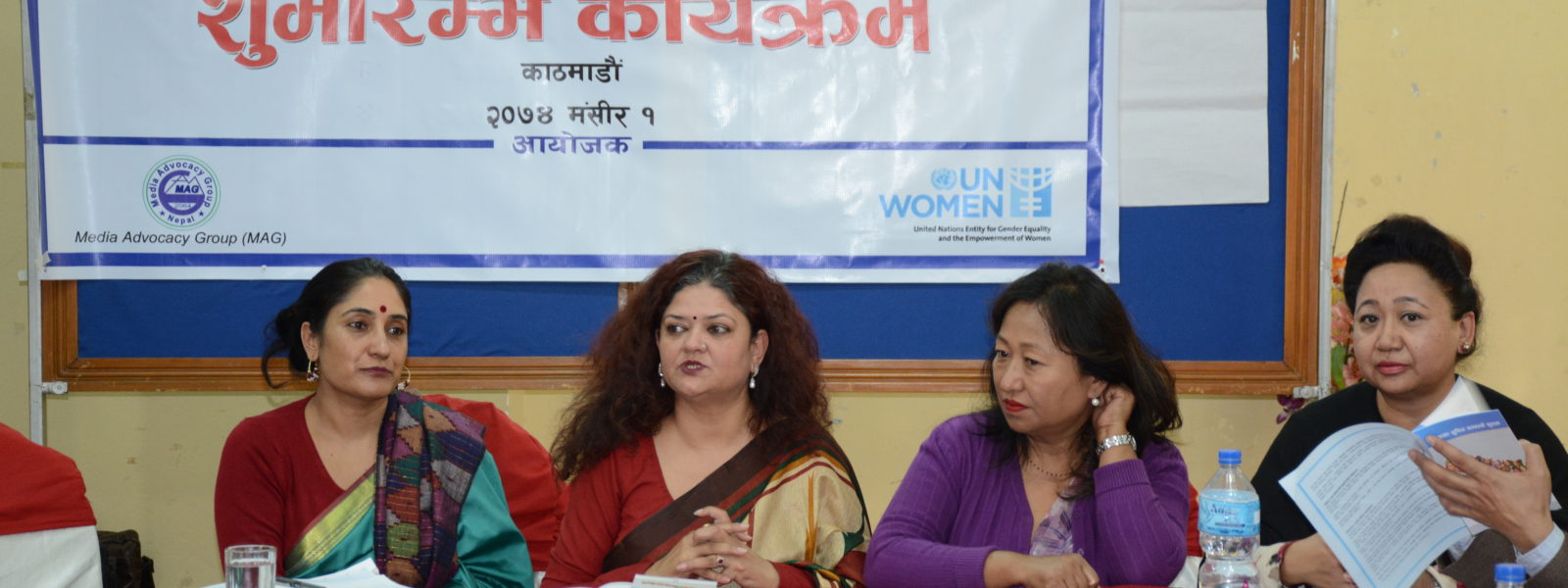
Natural disasters, for it, creates the loss of existing structures and disrupt the mechanism including the control over assets, mass displacement and poor living conditions, law enforcement and justice systems including social protection mechanisms and loss of family protection.
The massive earthquake destroyed many houses making millions of people dead, homeless, widowed and orphaned. As a consequence, a large number of men has left for employment elsewhere, leaving behind female-headed households at the economic and social disadvantage and limited protection. The pressure to migrate increased and many migrants who didn’t get the chance to leave the country in a formal, registered way left unsafe. With low education, limited livelihood options most of them are forced to choose unsafe migration without proper information which may drag them to trafficking. As various tools are applied to address the web of adversities facing women but the insufficient focus has been paid to the power that information can play in confronting these challenges.┬Ā Paradoxically, it is arguable that while women are the least likely to demand and receive access to information, they are perhaps the most in need of this potent tool.
Under the overall framework of The Future We Want (FWW) project and the Memorandum of Understanding (MOU) with National Information Commission (NIC), UN Women is partnering with Media Advocacy Group (MAG) to implement this program in Sindhupalhowk, Dhading and Kathmandu. The overall goal of this assignment is to support the Government of Nepal, specifically the NIC to ensure womenŌĆÖs Right to Information (RTI) specifically related to labor migration and human trafficking in the post-disaster context.
The main objectives of the project are:
- To enhance synergy between institutions and policies on issues of unsafe migration and human trafficking through improved evidence-based awareness raising, advocacy, information dissemination, capacity development and coordination support.
- To contribute to women’s RTI in the post-disaster context through information sharing mechanisms in partnership with NIC to carry out extensive information dissemination.
- To empower women to seek information from government entities to make a well informed and responsive government structure.
Programs
News and Events
Articles Published on Online Portals
Óż¬ÓźŹÓż░Óż¦ÓżŠÓż©Óż«Óż©ÓźŹÓżżÓźŹÓż░ÓźĆÓż▓ÓżŠÓżł Ó
Published On:ÓżśÓż¤Óż©ÓżŠ Óż░ ÓżĄÓż┐ÓżÜÓżŠÓż░
Óż░ÓżŠÓżĘÓźŹÓż¤ÓźŹÓż░Óż¬ÓżżÓż┐ ÓżĢÓżŠÓż░ÓźŹÓż»ÓżŠÓ
Published On:ÓżśÓż¤Óż©ÓżŠ Óż░ ÓżĄÓż┐ÓżÜÓżŠÓż░
ÓżĖÓż«ÓźŹÓż¼Óż©ÓźŹÓż¦ÓżĄÓż┐ÓżÜÓźŹÓżøÓźćÓż”Óż«ÓżŠ Ó
Published On:ÓżśÓż¤Óż©ÓżŠ Óż░ ÓżĄÓż┐ÓżÜÓżŠÓż░
women in media
Published On:wow Magazine
‘ÓżżÓźćÓż▓ ÓżŁÓż┐ÓżĖÓżŠ’ Óż▓ÓżŠÓżŚÓźŹÓ
Published On:ÓżśÓż¤Óż©ÓżŠ Óż░ ÓżĄÓż┐ÓżÜÓżŠÓż░-Óż¼Óż¼Óż┐ÓżżÓżŠ Óż¼ÓżĖÓźŹÓż©ÓźćÓżż